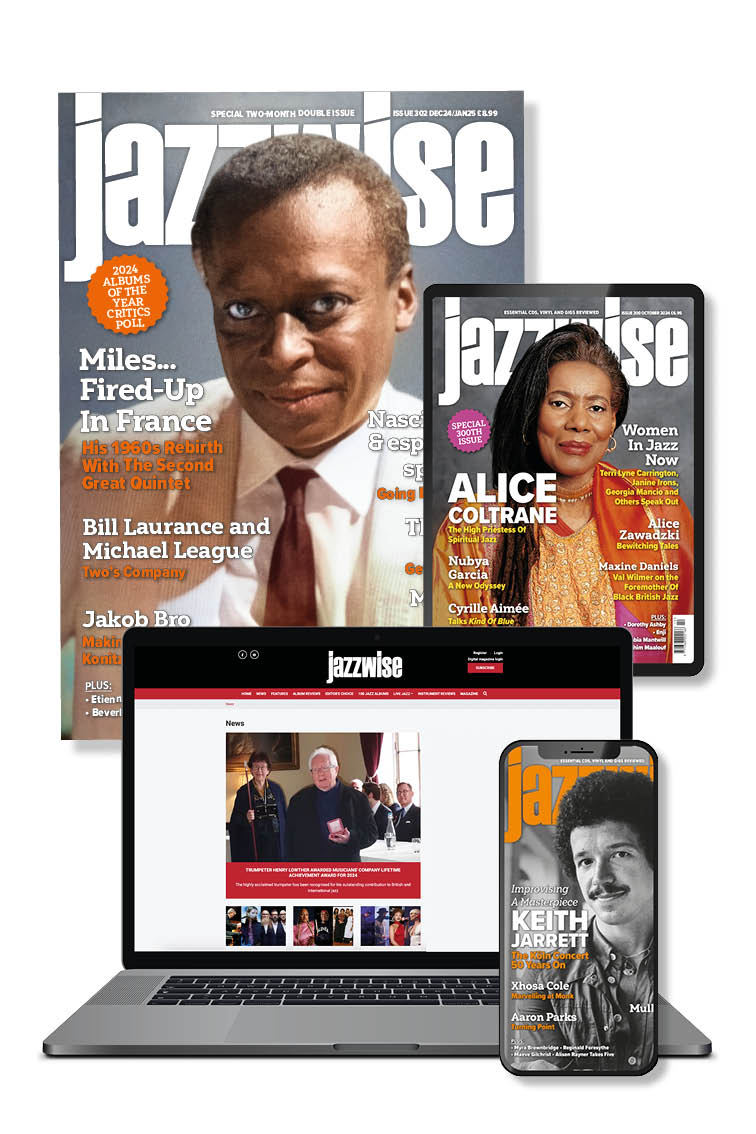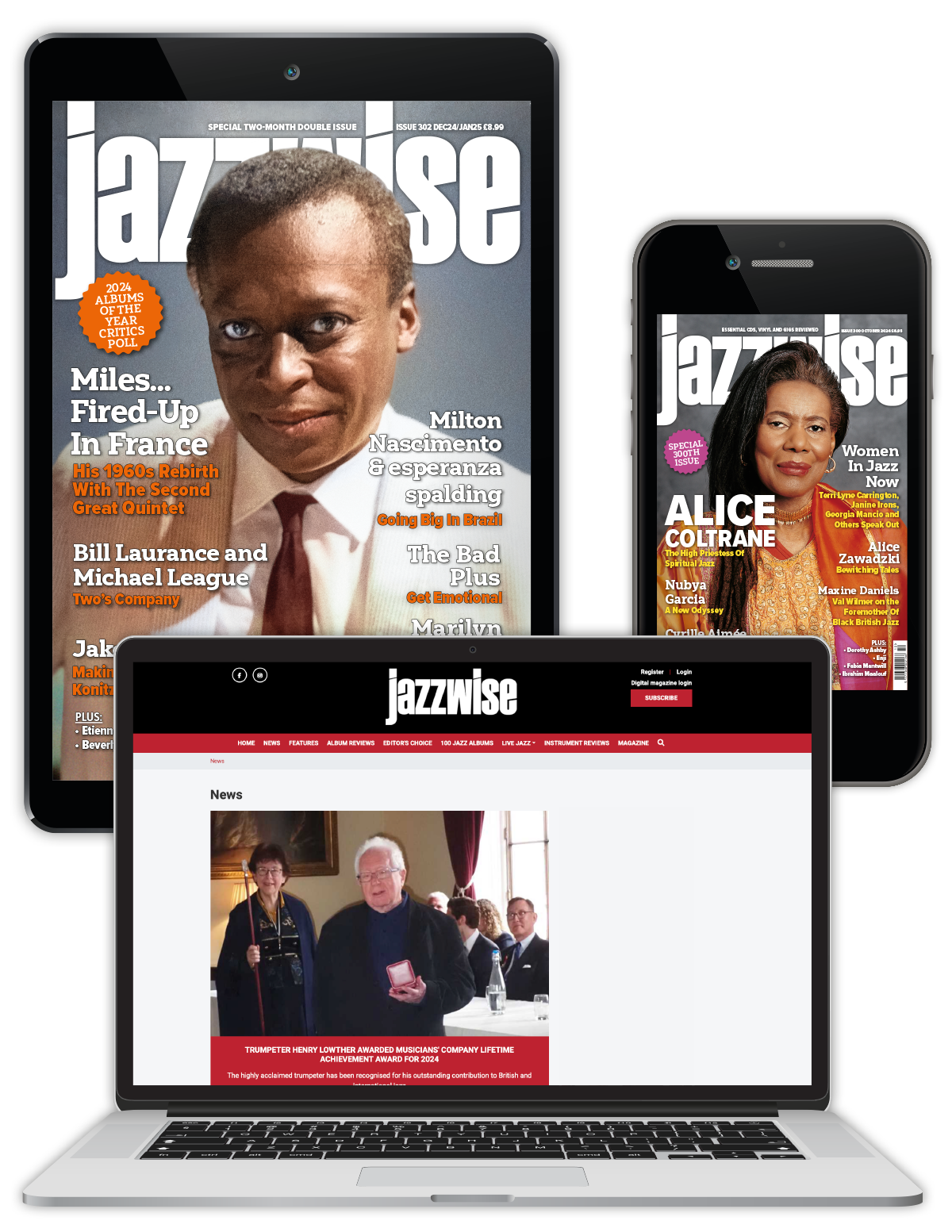Manu Dibango: Past Present Future
Author: Jane Cornwell
View record and artist detailsRecord and Artist Details
Musicians: |
Manu Dibango (vib, as, ts) |
Label: |
Border Blaster |
Magazine Review Date: |
June/2012 |
RecordDate: |
2011 |
A forward-in-all-directions effort from the masterly Manu Dibango, who at 78 is still committed to trying out new ideas, still experimenting and collaborating on what happens to be his thirtieth album. The Cameroonian saxophonist and multiinstrumentalist burst onto the mainstream scene in 1972 with Soul Makoss, an Afrobeat smash that would be pilfered shamelessly by Michael Jackson, be cited as one of the first ever disco records and have nine different versions jostling in the Billboard chart. Here the song gets a funky R&B makeover by the prodigious singer/producer Wayne Beckford, whose work with the likes of such pop A-listers as Seal and Black Eyed Peas explains the track's glossy sheen. The entire album benefits from Beckford's production; a wealth of young artists including Dibango's grandson are given free rein to add their own musical fillips, but only if they benefit the whole. Songs with French and English lyrics (the French ones sound better, given the simplistic translations) tell of Africa and her joys and hardships: ‘Elolombe’ with Franco-Cameroonian rapper Pit Baccardi has a compelling, gritty groove. Moroccan singer Oum imbues ‘Oum Song’ with graceful arabesques; the Congolese-French rapper Passi lends ‘Bantou Life’ a hard-hitting urgency. Throughout, Dibango's sunny sax lines join dots between America and Europe, Africa and the world; between pop and funk, rap and soul. Throughout – but especially on his eponymous paean, delivered by Cameroonian rapper Lalcko – his jazz chops are so sensitive they bristle. Past Present Future brims with optimism as it honours Dibango's stellar career; which, by the way, ain't over by a long shot.
Jazzwise talks to Manu Dibango about his album
Past Present Future is a mix of genres. But how jazz is it?
Jazz is a mix of cultures and infl uences so yeah, it's jazz. I play jazz through an African lens.
How important was Wayne Beckford to this project and why?
Wayne is young, gifted and professional. He brought a new vision, and a sense of renewal and freshness. Our collaboration was very effortless. It felt as if we had known each other for a very long time.
You are working with a number of young collaborators. How did you choose them?
I didn't – they chose me! All these young artists have wanted to work with me for a long time. They call me their grandfather. I'm the link between two, even three generations.
You've done an R&B cover of ‘Soul Makossa’; what is it about this track that makes it so durable?
No one knows. I'm always totally surprised by its success. It's one of the most sampled tracks ever, you know.
There a track called ‘Manu Dibango’, which is sung by Lalcko in a tribute track to your good self. How did it come about?
Lalcko paid me a visit while we where recording the album and wanted to write for me. I allowed him to do what ever he wanted, and the song came.
Do you have a favourite saxophone?
I do! My saxophone is part of my life, part of my body. I play it every day. Every single day.
How would you like to be remembered?
As a global musician. Music has no country, no boundaries.

Jazzwise Full Club
- Latest print and digital issues
- Digital archive since 1997
- Download tracks from bonus compilation albums throughout the year
- Reviews Database access
From £9.08 / month
Subscribe
Jazzwise Digital Club
- Latest digital issues
- Digital archive since 1997
- Download tracks from bonus compilation albums during the year
- Reviews Database access

